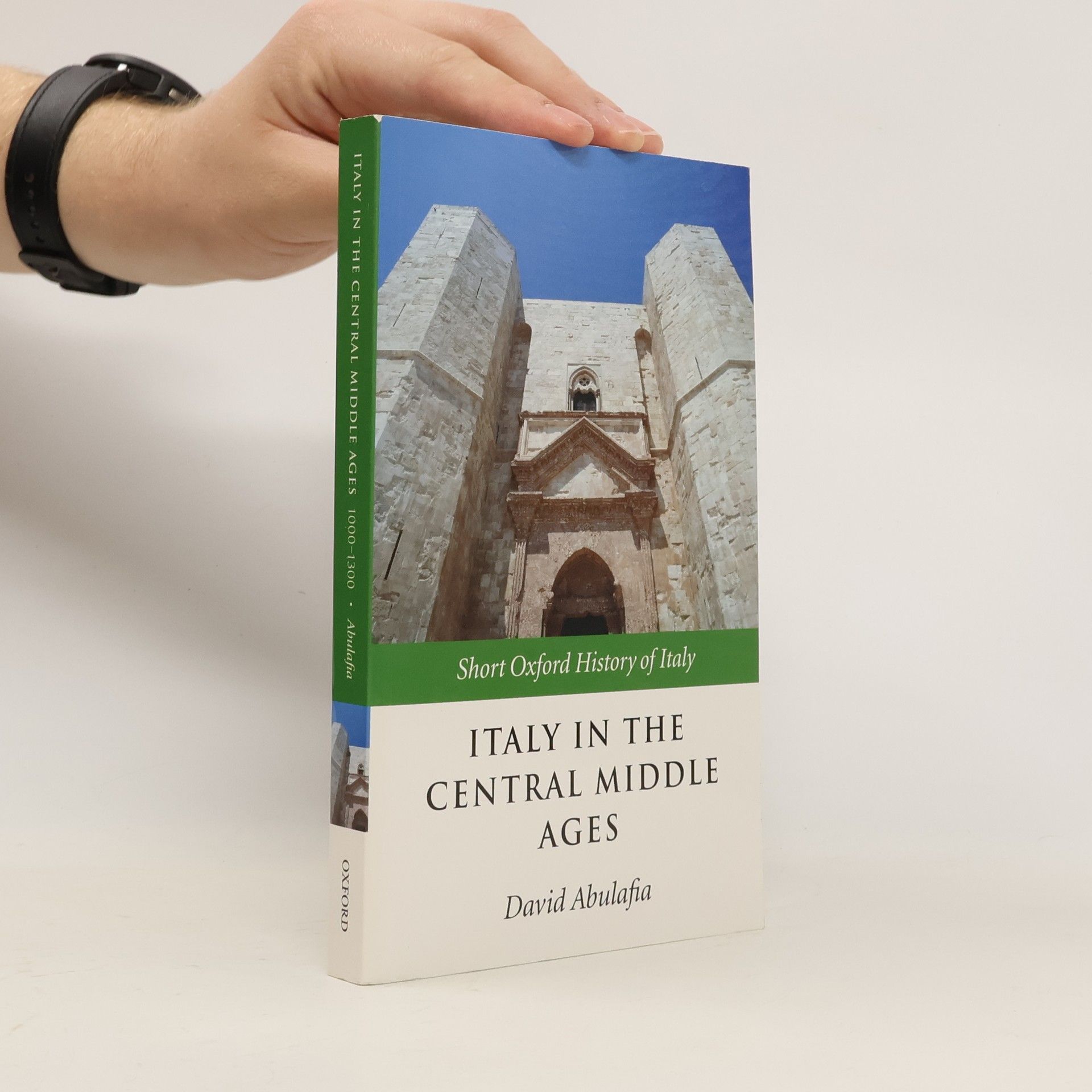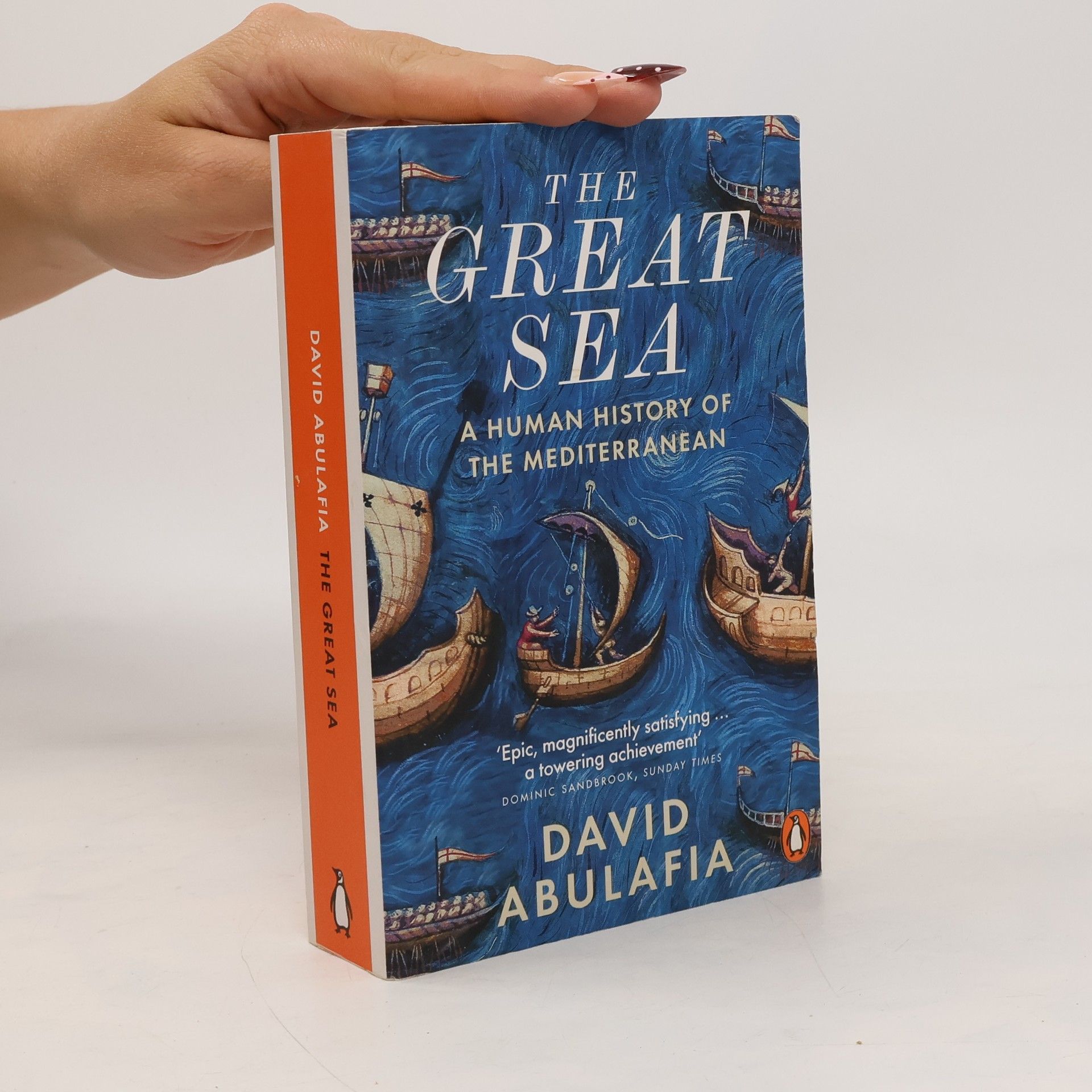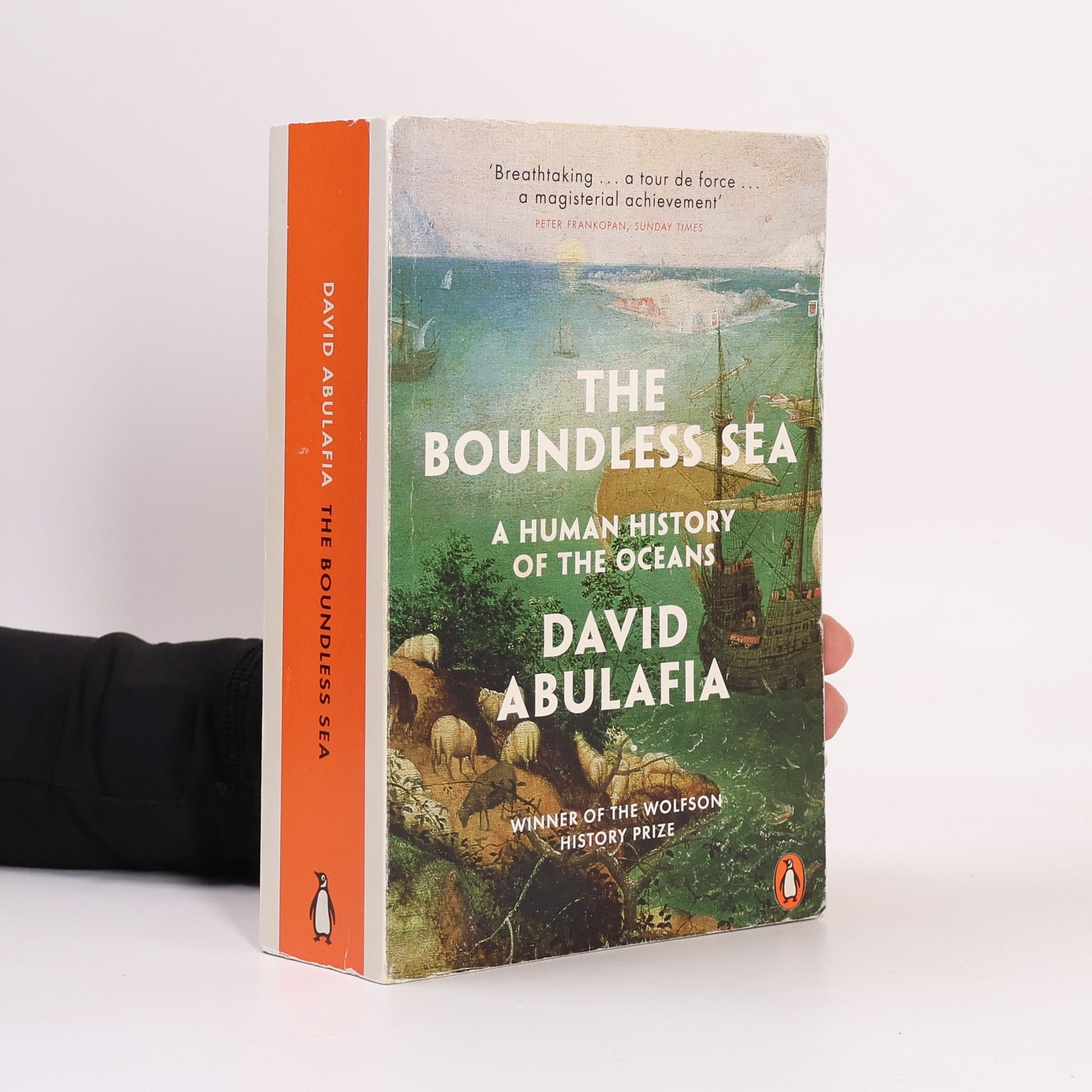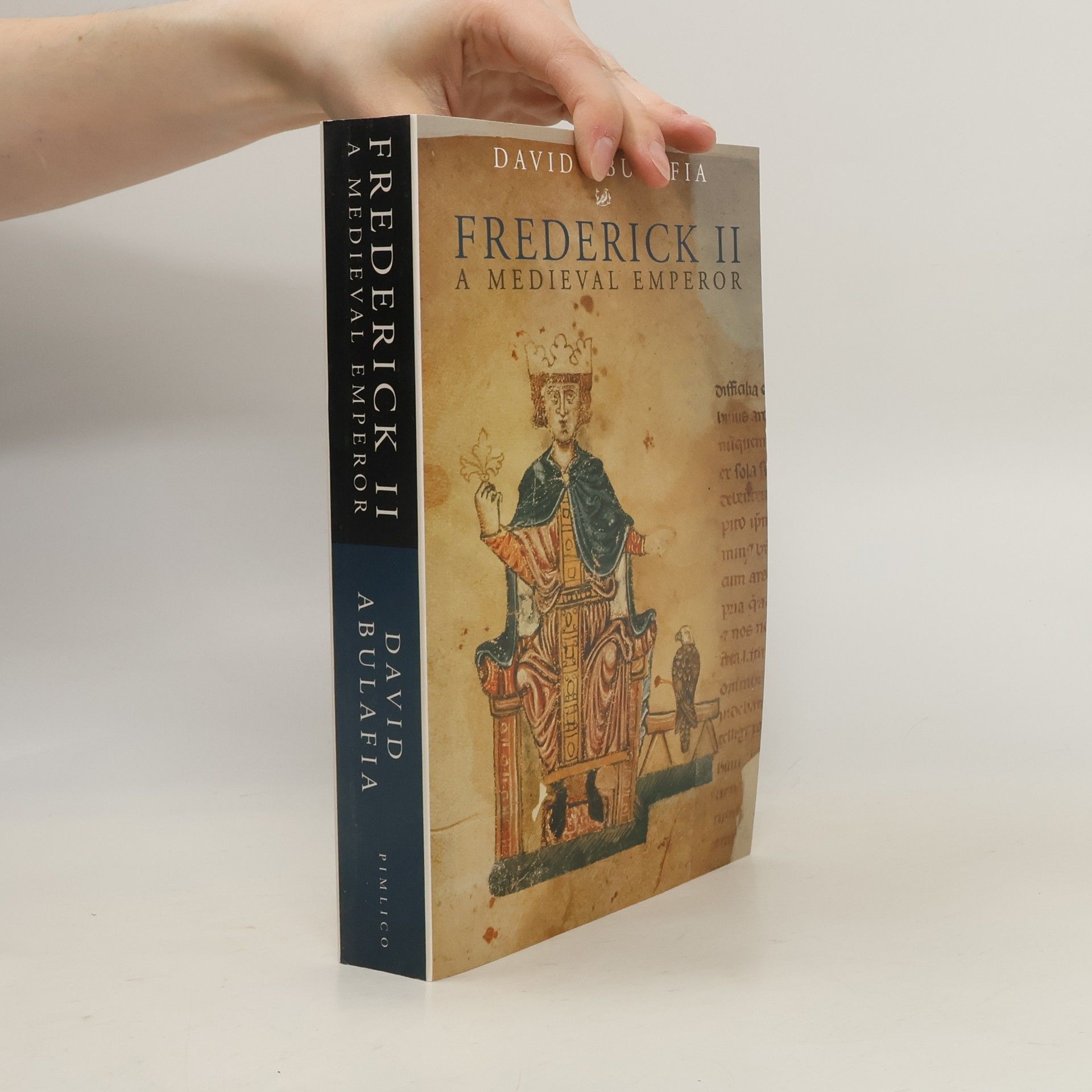Frederick II of Hohenstaufen (1194-1250) - King of Sicily, Holy Roman Emperor, King of Jerusalem, expert ornithologist, Wonder of the World - has long been considered the first Renaissance ruler - a visionary autocrat who embraced the religious divisions within his empire to challenge the armies and oppressive limitations of the medieval church. He has aslo been denounced as the Antichrist, a heretic and a heathen, who died condemned by the papacy to eternal damnation. David Abulafia's masterly biography overturns the myths and reveals Frederick as neither the Beast of the Apocalypse nor the Universal Hero adopted by pre-Nazi Germany. Instead we are shown a man very much of his time, an emperor whose reign coincided with the great turning-points of the high Middle Ages.
David Abulafia Books
David Abulafia is a British historian with a particular interest in Italy, Spain, and the Mediterranean during the Middle Ages and Renaissance. His works delve into the intricate interactions and discoveries of these pivotal eras. Abulafia explores the human history and cultural exchange that shaped the Mediterranean world. His writing offers a compelling look into the past.






The New Cambridge Medieval History
- 1086 pages
- 39 hours of reading
This comprehensive reference work explores the entirety of Europe in the thirteenth century, covering both Eastern and Western regions. It delves into the political, social, and cultural dynamics of the time, providing an in-depth analysis of key events, figures, and developments that shaped the continent. Ideal for historians and enthusiasts alike, it serves as an essential resource for understanding the complexities of medieval Europe.
The Boundless Sea
- 1088 pages
- 39 hours of reading
For most of human history, seas and oceans have been vital for long-distance trade and communication, facilitating the exchange of ideas, religion, and commerce. This narrative explores the history of human movement and interaction across the world's oceans, beginning with the Polynesians, who navigated the Pacific using intuitive skills long before the compass was invented. By the first century, they were already trading between distant islands. By the seventh century, trading routes connected the coasts of Arabia and Africa to southern China and Japan, linking the Indian Ocean and western Pacific through the spice trade. In the Atlantic, various peoples, including the Bretons, Frisians, and notably the Vikings, sought new lands across the sea, with the Vikings being the first Europeans to reach North America. As Portuguese maritime dominance waned in the late sixteenth century, the Spanish, Dutch, and British successively took control of the seas. Following merchants, explorers, pirates, and cartographers in their quests for spices, gold, and knowledge, the narrative reveals how maritime networks have shaped global interactions. From early canoe voyages to the routes of today's supertankers, this account illustrates that 90 percent of global trade continues to be conducted by sea.
Frederick II
- 466 pages
- 17 hours of reading
Frederick II (1194-1250) - King of Sicily, Holy Roman Emperor, King of Jerusalem, expert ornithologist, Wonder of the World, has long been considered the first Renaissance ruler. A visionary autocrat who embraced the religious divisions within his empire to challenge the armies and oppressive limitations of the medieval church, he has also been denounced as the Antichrist, a heretic and a heathen, who died condemned by the papacy to eternal damnation. "From the Trade Paperback edition.
The Great Sea
- 816 pages
- 29 hours of reading
For over three thousand years, the Mediterranean Sea has been one of the great centres of civilization. David Abulafia's The Great Sea is the first complete history of the Mediterranean, from the erection of temples on Malta around 3500 BC to modern tourism. Ranging across time and the whole extraordinary space of the Mediterranean from Gibraltar to Jaffa, Genoa to Tunis, and bringing to life pilgrims, pirates, sultans and naval commanders, this is the story of the sea that has shaped much of world history.
Italy in the Central Middle Ages
- 280 pages
- 10 hours of reading
Incorporating the latest developments in the study of the period, a team of leading international scholars provides a fresh and dynamic picture of a period of great transformation in the political, cultural, and economic life of the Italian peninsula, which witnessed the rise of autonomous city states in the north, the creation of a powerful kingdom in the south, and the development of the Italian language as a vehicle for literary expression.
The Mediterranean has been the meeting-place of the cultures of Europe, Asia and Africa, the battleground of races and nations and the focus of three great religions, Christianity, Judaism and Islam. David Abulafia, doyen of Mediterranean scholars, has brought together a team of leading specialists from many countries to tell this enthralling and complex story as a connected narrative: from the physical setting, the prehistoric traders and the struggle between Phoenicians, Greeks and Etruscans ending in Roman victory, to the post-Roman nations, the Christian and Islamic powers, domination by England and France, and finally the twentieth century, divided between war and mass tourism. This study covers all of recorded history, incorporating recent research and tools ranging from linguistics to underwater archaeology, accompanied by spectacular illustrations. Here is the only complete and up-to-date overview of one of the great themes of world history. With 28 illustrations
The Two Italies
Economic Relations Between the Norman Kingdom of Sicily and the Northern Communes
- 332 pages
- 12 hours of reading
The book explores the economic dynamics of twelfth-century Italy, focusing on the interconnected commercial interests of the Norman Kingdom of Sicily and the maritime ports of Genoa, Pisa, and Venice. Utilizing largely untapped archival sources, it details how northern Italian merchants sought to expand their influence in Sicily through agreements with Norman rulers and other powers. The text highlights Sicily's role as a key exporter of wheat and cotton, illustrating a division between an agrarian south and an industrializing north, driven by the exploitation of southern resources.
David Abulafia erzählt in diesem kunstvoll gestalteten Buch die Geschichte der Welt aus der Perspektive der Meere. Er beschreibt, wie Ozeane den Austausch von Waren, Ideen und Kulturen ermöglichten und dabei die Geschicke der Menschen prägten. Das Werk bietet ein Panorama globaler Verbindungen und ist ideal für Entdecker.
Das Mittelmeer
Eine Biographie
Die Geschichte des Mittelmeeres ist seit über 3000 Jahren ein zentrales Element unserer Zivilisation. An seiner geografischen Achse fanden bereits zur Zeit Trojas bedeutende politische und kulturelle Entwicklungen statt. Von hier aus wurden Reiche erobert, Grenzen verschoben und Weltanschauungen durchgesetzt, begleitet von Schrecken, Kriegen und Tragödien. Doch es gibt auch die andere, positive Seite: die Geschichte eines Dialogs zwischen verschiedenen Kulturen, Identitäten, Politiken, Wissenschaften, Handel und Religionen entlang der Küsten, die die Römer als Mare Nostrum bezeichneten. Abulafia spannt einen Bogen durch Raum und Zeit und zeigt, wie das Mittelmeer zu einem kraftvollen Ort wurde, an dem die Menschheitsgeschichte auf einzigartige Weise reflektiert wird. Dieses Werk ist nicht nur lehrreich, sondern auch packend und faszinierend, und es beeindruckt durch seine Gelehrtheit und Begeisterung. Kritiker heben hervor, dass es ein Meilenstein in der Geschichtsschreibung ist und für lange Zeit konkurrenzlos bleiben wird. Die Vielfalt von Abulafias Wissen ist bemerkenswert, und sein episches, gut lesbares Werk über die Wiege des Westens wird als herausragend angesehen.

